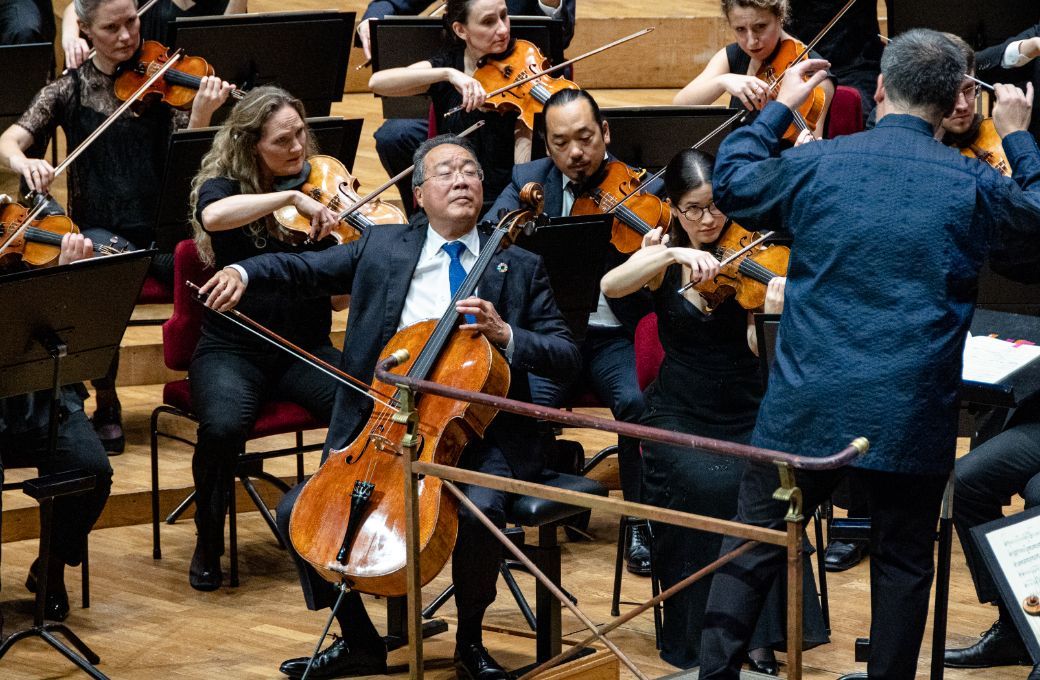Seraphic smiles. Encouraging smiles. Happy-to-be-with-you smiles. Long after the music has faded from the collective memory of the audience at last night’s concert given by Yo-Yo Ma and the Royal Stockholm Philharmonic Orchestra, the lasting impression will be one of warmth, humour and the mutual admiration shown between soloist and players. The spectacular cellist, peace ambassador and cultural visionary is this year’s Birgit Nilsson prizewinner – the first solo instrumentalist to be given the prestigious award, which aims to laud those who have created an important chapter in music’s history, and to honour the memory of Sweden’s celebrated dramatic soprano. At one million dollars it’s the world’s largest classical music prize.

He will accept the award from the King of Sweden on Tuesday, but last night demonstrated in both music and demeanour why the prize panel had made such a good choice. In front of a capacity audience at the Stockholm Konserthuset he brought both passionate beauty and intense drama to Dvořák’s Cello Concerto in B minor, all the while exhibiting a beatific serenity that spoke volumes about his approach to life and to his love of making music with others.
Ma is never the aloof soloist, lost in his own world, oblivious to those around him. When an orchestral player has an important passage, he turns to listen and to appreciate. If he needs to finish a phrase on a cadence with, for example, the principal viola, he goes out of his way to make eye contact and bring it into land. When the leader of the orchestra has a duet with the cello, he revels in the other’s playing. To him, a concerto is not about the soloist but about everybody on the platform; a philosophy that informs his life outside the concert hall and just one of the many reasons the panel chose him.
Ma never does things by halves; there’s real commitment in every phrase and every note, coupled with a supreme musicality and sense of shape. He caressed the first movement’s folksong-like central theme with affecting tenderness before dismissing lengthy passages of dizzying double-stopping with insouciance. There was real fire in his emphatic opening of the finale, which he spelt out in capital letters, broken bow hairs ignored, before lapsing so meltingly into the rhapsodic second subject and the ecstatic upper register conclusion.
The dry acoustic in the hall did its best to take the bloom from his playing, and there were occasions when conductor Alan Gilbert could have curbed the enthusiasm of the orchestra, but none of that dissuaded the audience from rising to its feet to demand more after such a heartwarming performance. Ma took six calls before finally conceding that he ought to give an encore, but he was on stage without his cello, so he turned to the principal cellist and asked to borrow his instrument (and bow) to play the Prelude from Bach’s First Cello Suite. A magical moment.
There were more smiles and nods between the members of the orchestra in the first half of the evening, devoted to Berlioz’s Symphonie fantastique. They were clearly enjoying the piece and weren’t afraid to show their appreciation of each other’s virtuosity; a refreshing openness that other orchestras could adopt. Surely an audience is more likely to enjoy the evening if the players are clearly enjoying too. I confess this is not a piece at the top of my listening list, but Gilbert, conducting without a score, made a convincing, if loud, case for it – so loud, in fact, that people near me often had to cover their ears. It couldn’t have been more strident, but it proved a suitably frisky fanfare for the sophistication that was to follow.
Stephen's press trip to Stockholm was funded by the Birgit Nilsson Foundation.


